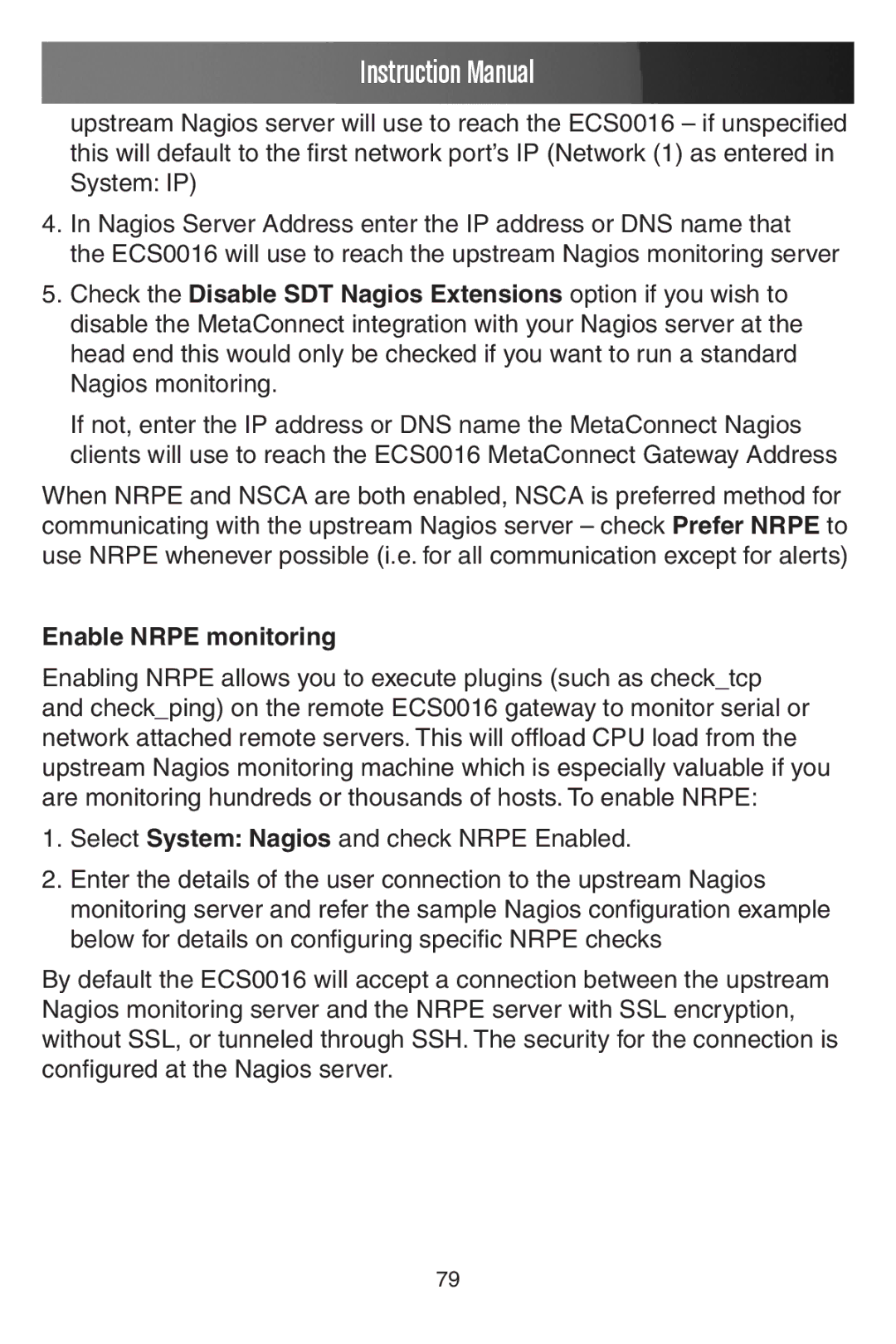Instruction Manual
upstream Nagios server will use to reach the ECS0016 – if unspecified this will default to the first network port’s IP (Network (1) as entered in System: IP)
4.In Nagios Server Address enter the IP address or DNS name that
the ECS0016 will use to reach the upstream Nagios monitoring server
5.Check the Disable SDT Nagios Extensions option if you wish to disable the MetaConnect integration with your Nagios server at the head end this would only be checked if you want to run a standard Nagios monitoring.
If not, enter the IP address or DNS name the MetaConnect Nagios clients will use to reach the ECS0016 MetaConnect Gateway Address
When NRPE and NSCA are both enabled, NSCA is preferred method for communicating with the upstream Nagios server – check Prefer NRPE to use NRPE whenever possible (i.e. for all communication except for alerts)
Enable NRPE monitoring
Enabling NRPE allows you to execute plugins (such as check_tcp and check_ping) on the remote ECS0016 gateway to monitor serial or network attached remote servers. This will offload CPU load from the upstream Nagios monitoring machine which is especially valuable if you are monitoring hundreds or thousands of hosts. To enable NRPE:
1.Select System: Nagios and check NRPE Enabled.
2.Enter the details of the user connection to the upstream Nagios monitoring server and refer the sample Nagios configuration example below for details on configuring specific NRPE checks
By default the ECS0016 will accept a connection between the upstream Nagios monitoring server and the NRPE server with SSL encryption, without SSL, or tunneled through SSH. The security for the connection is configured at the Nagios server.
79
